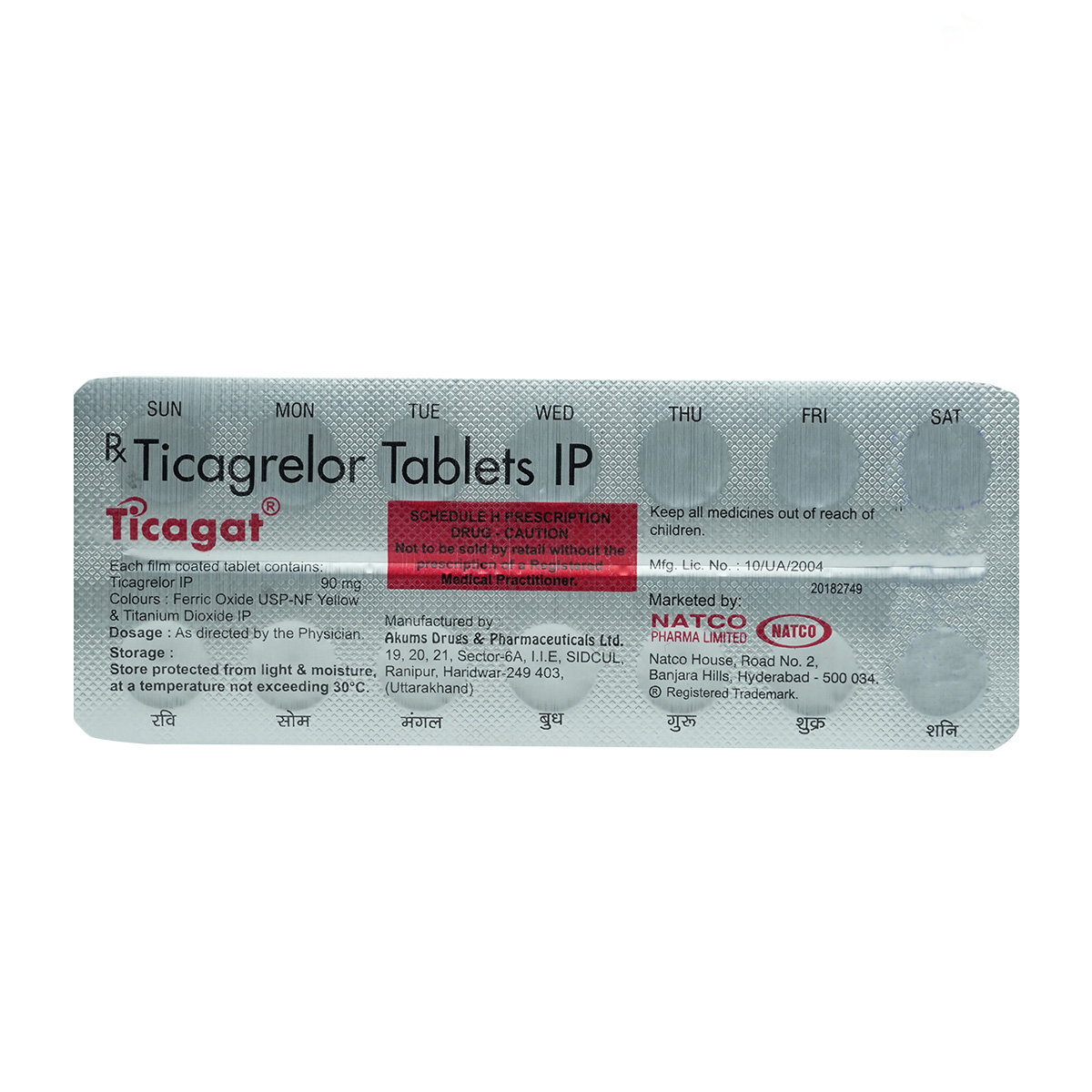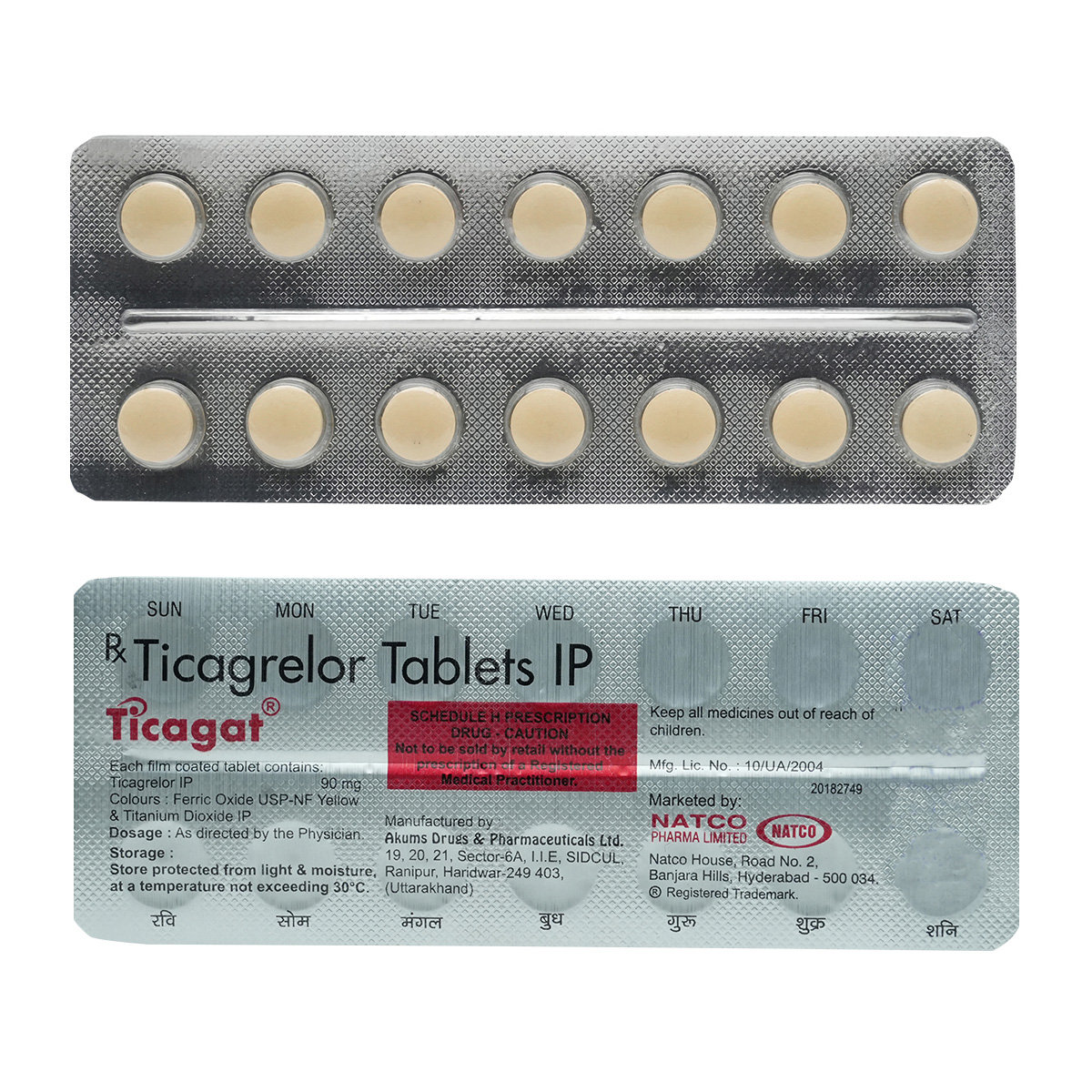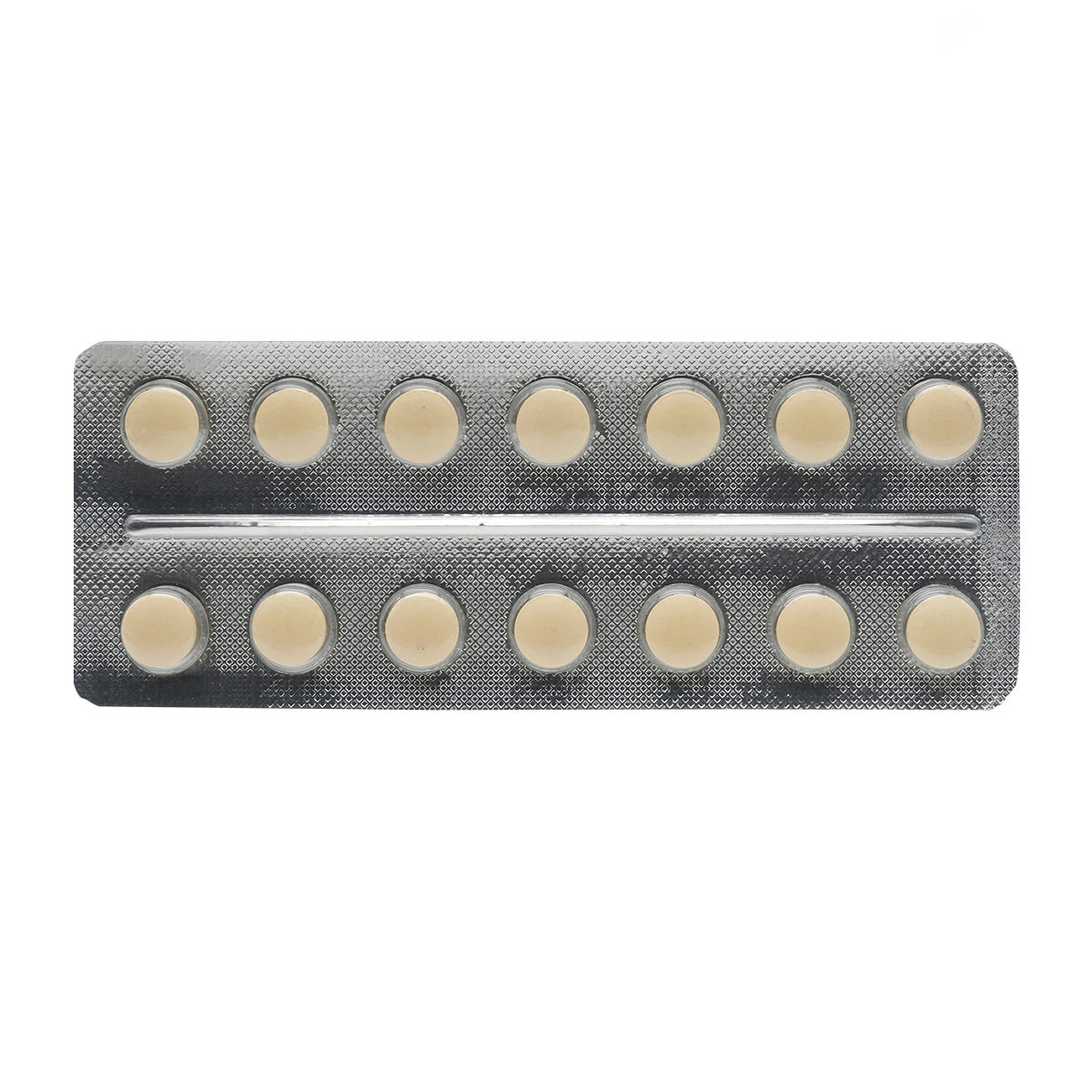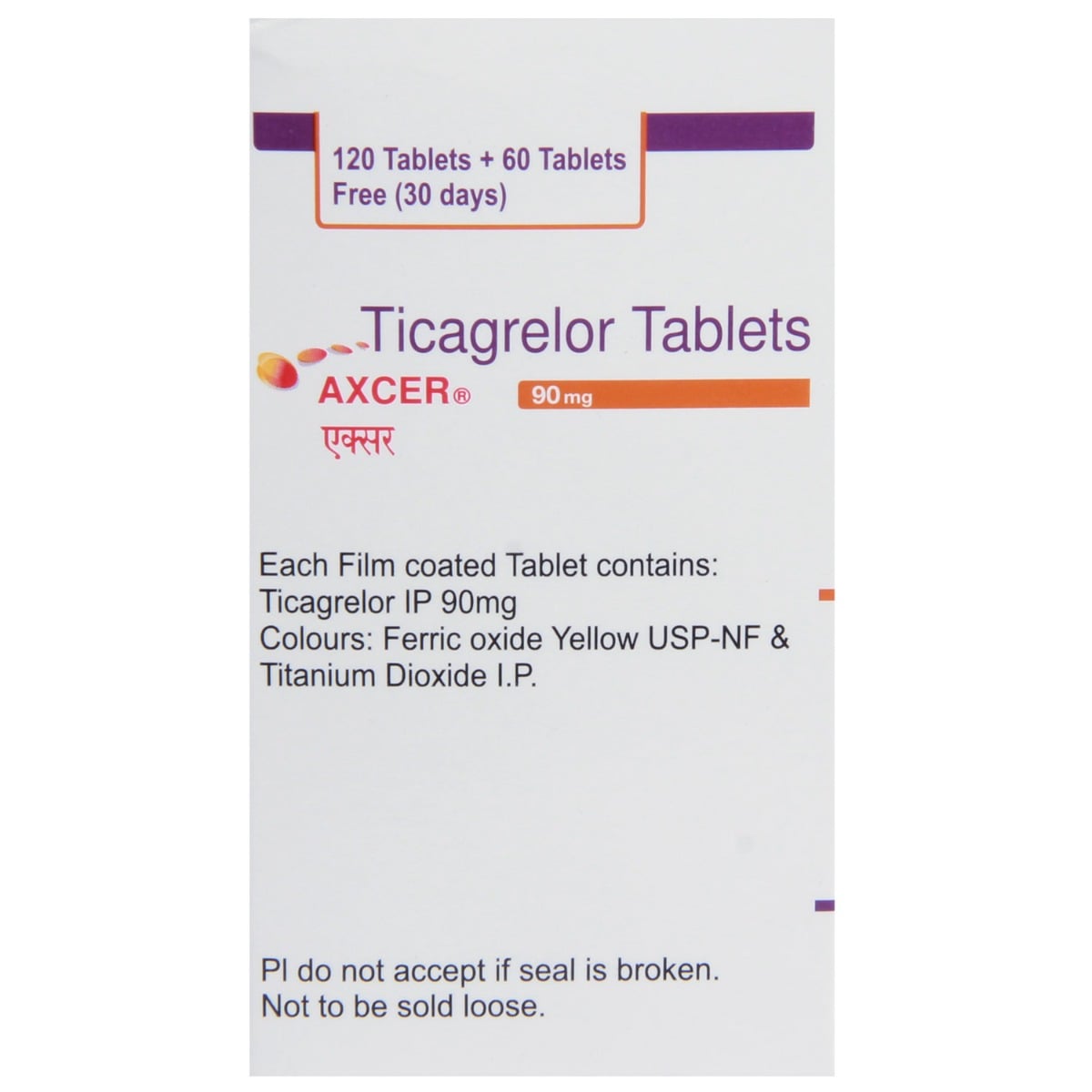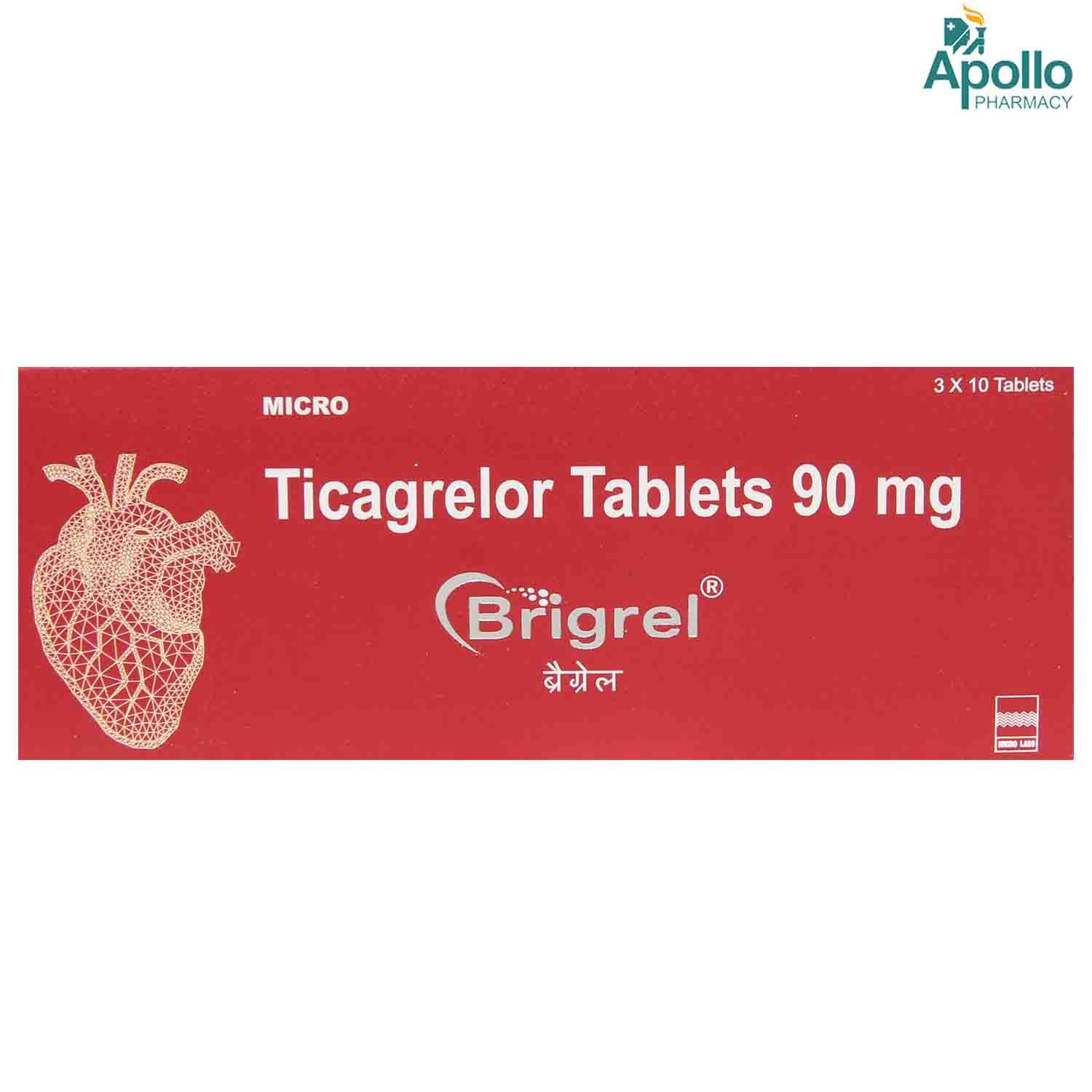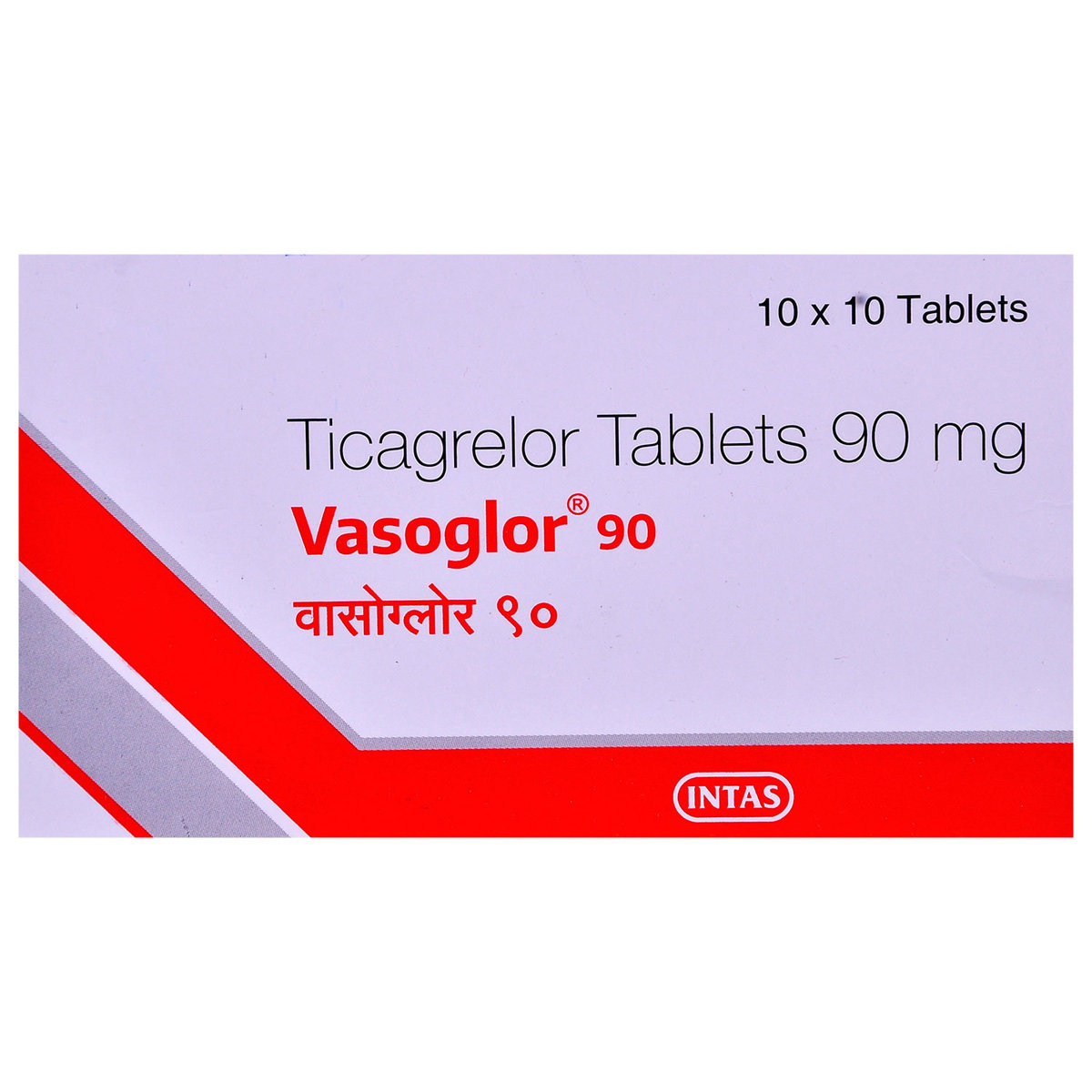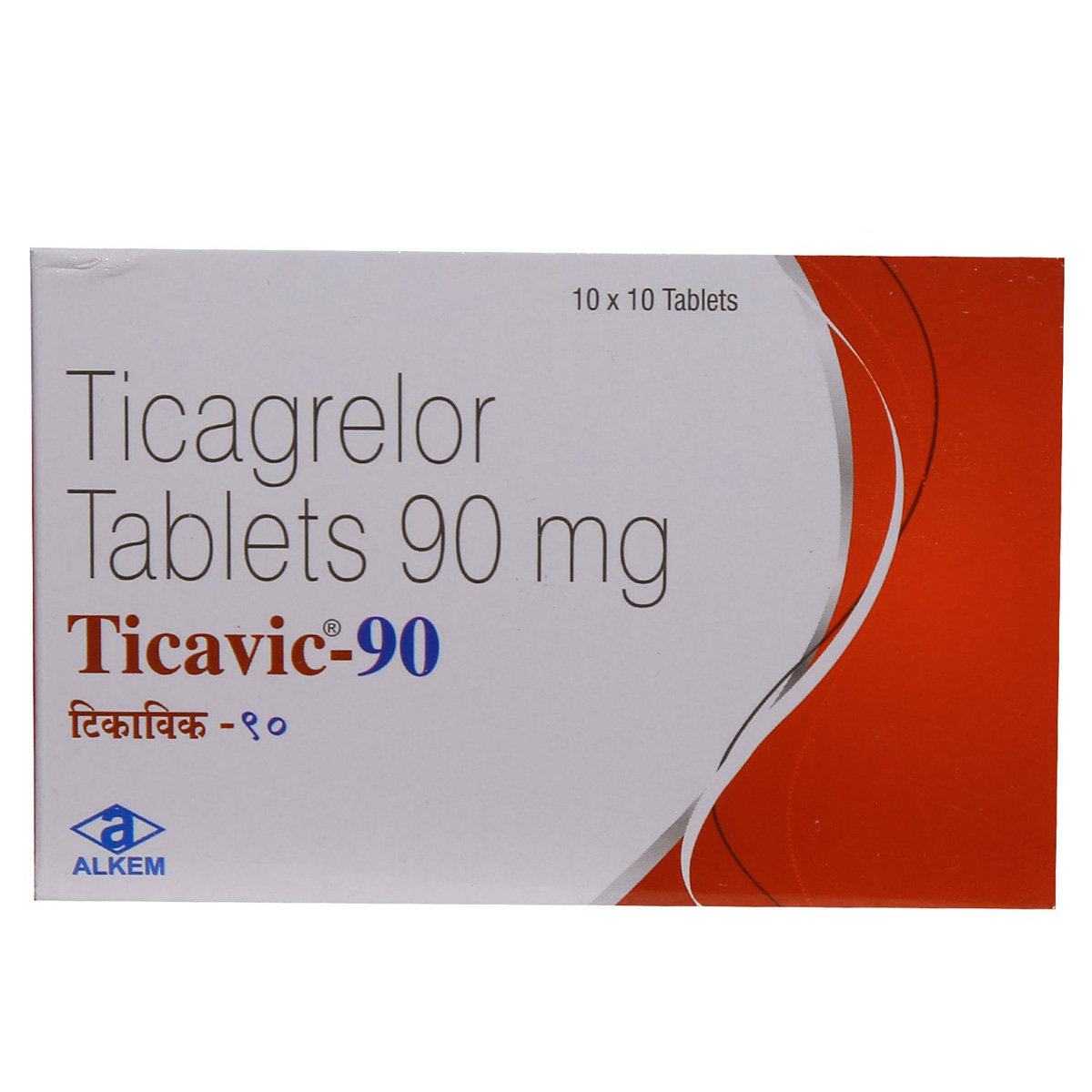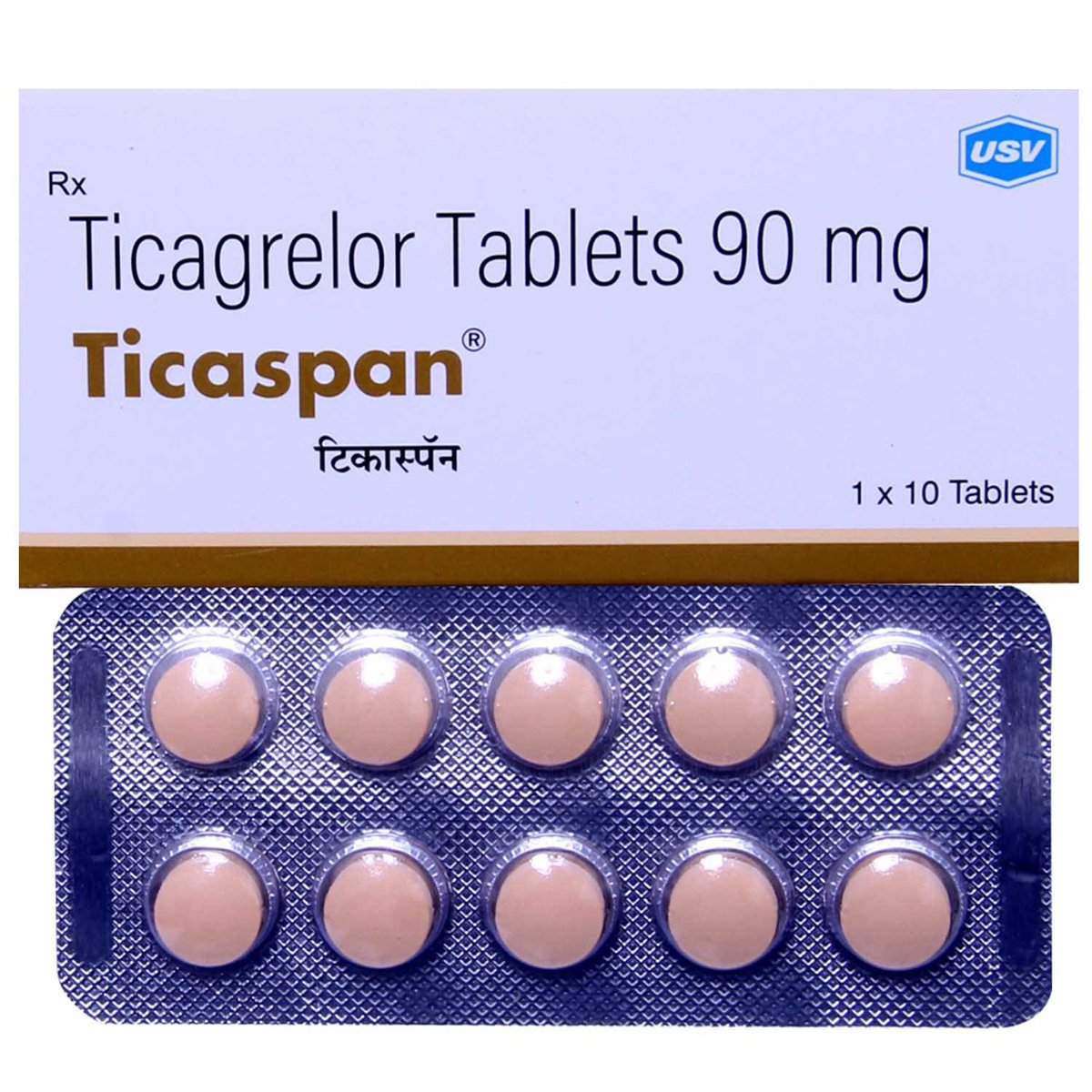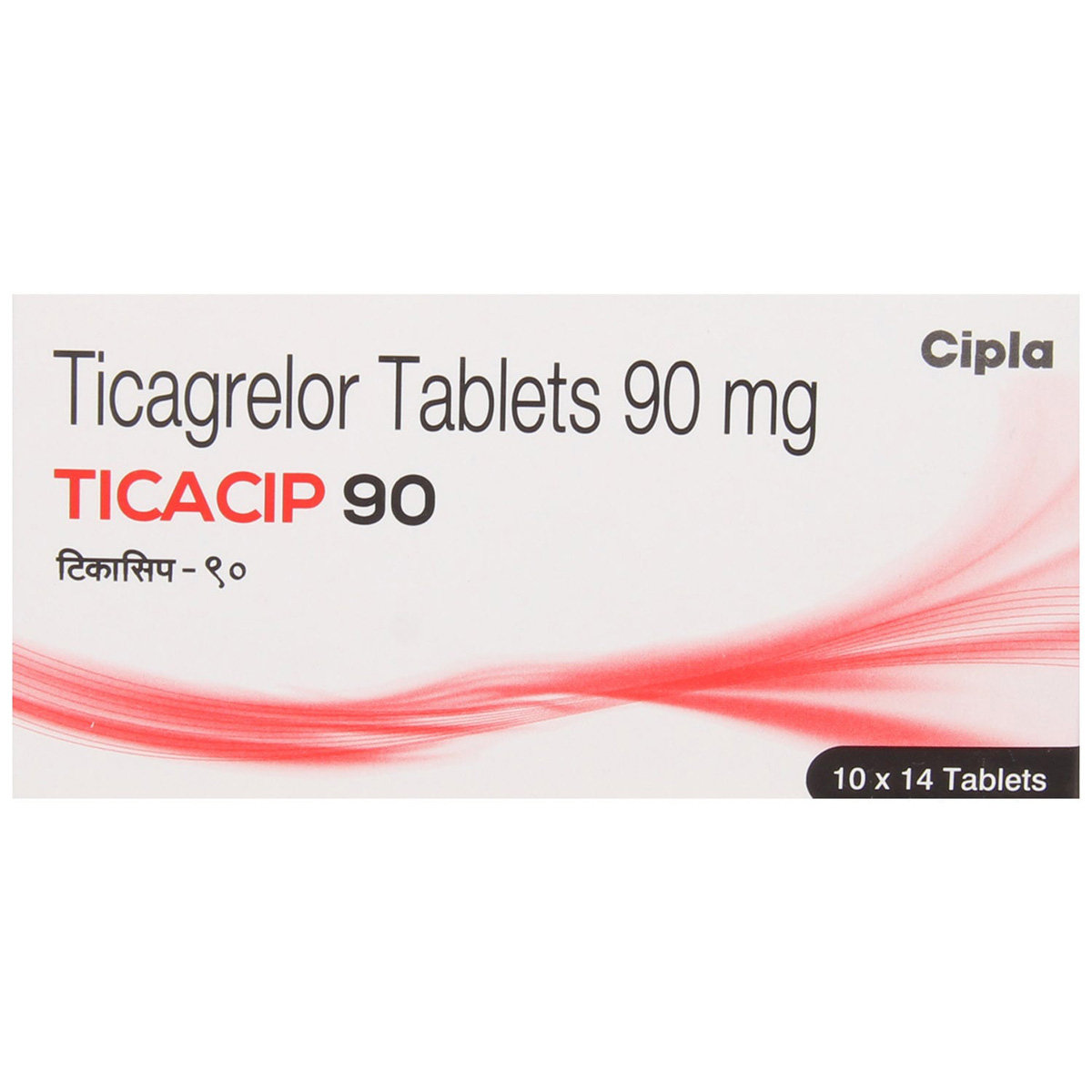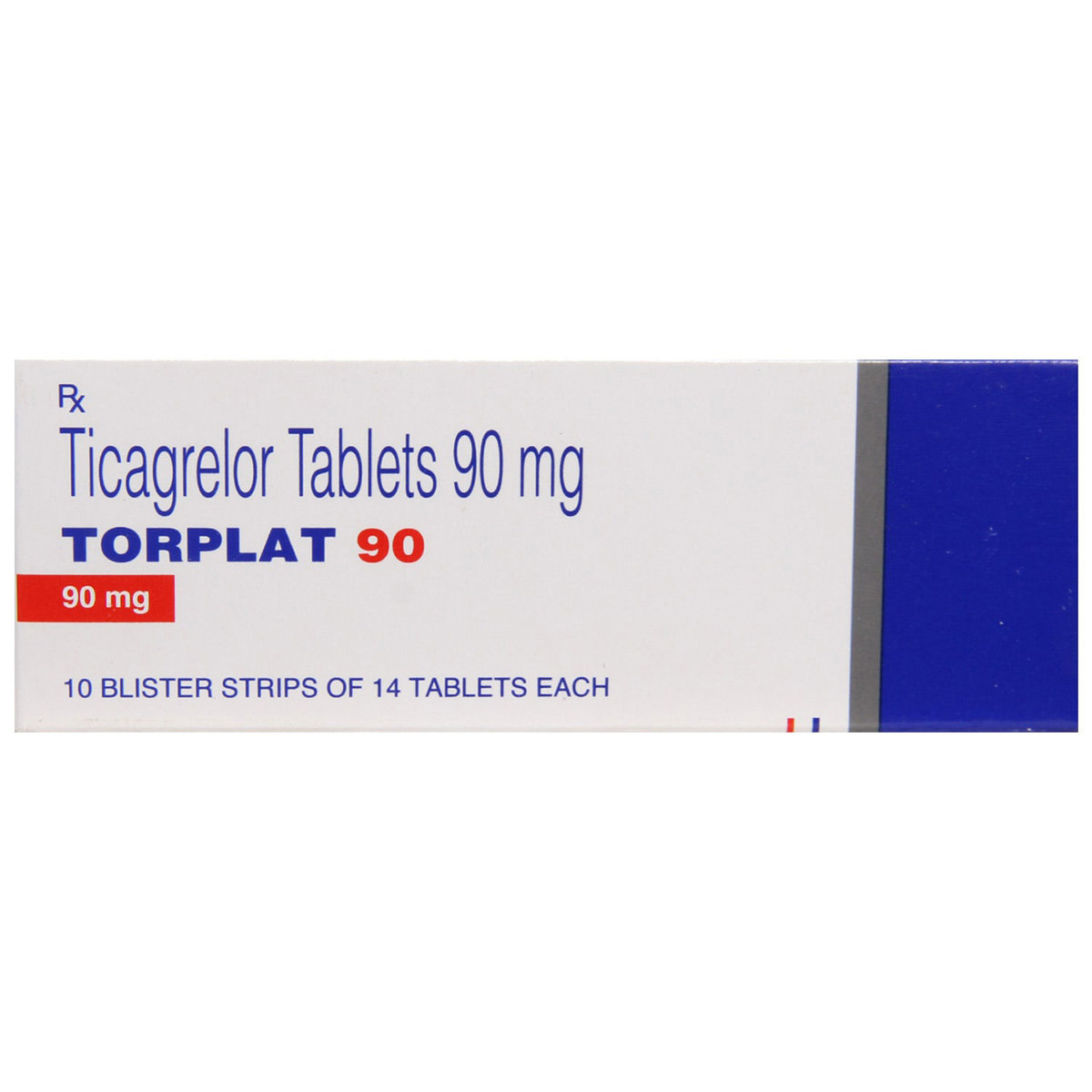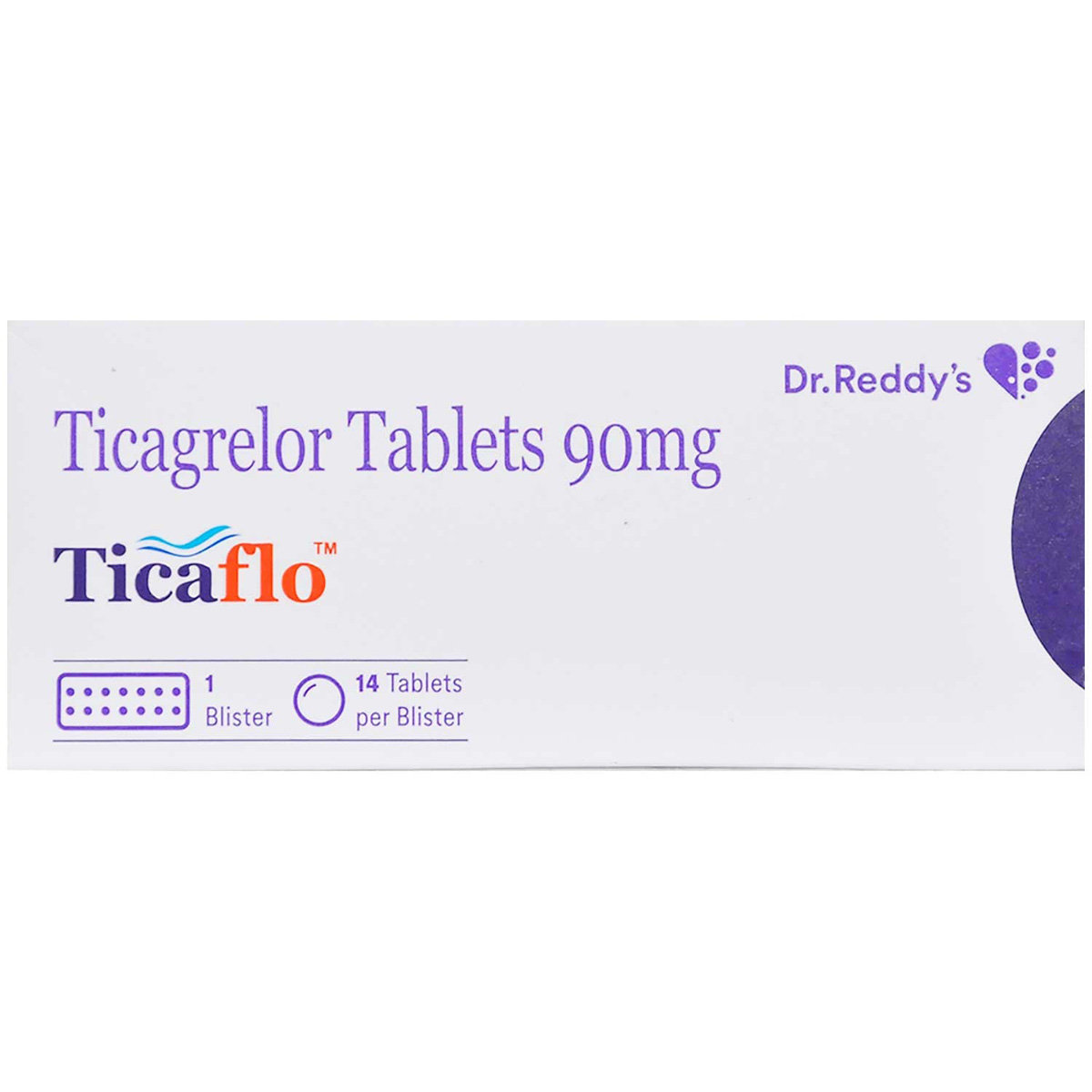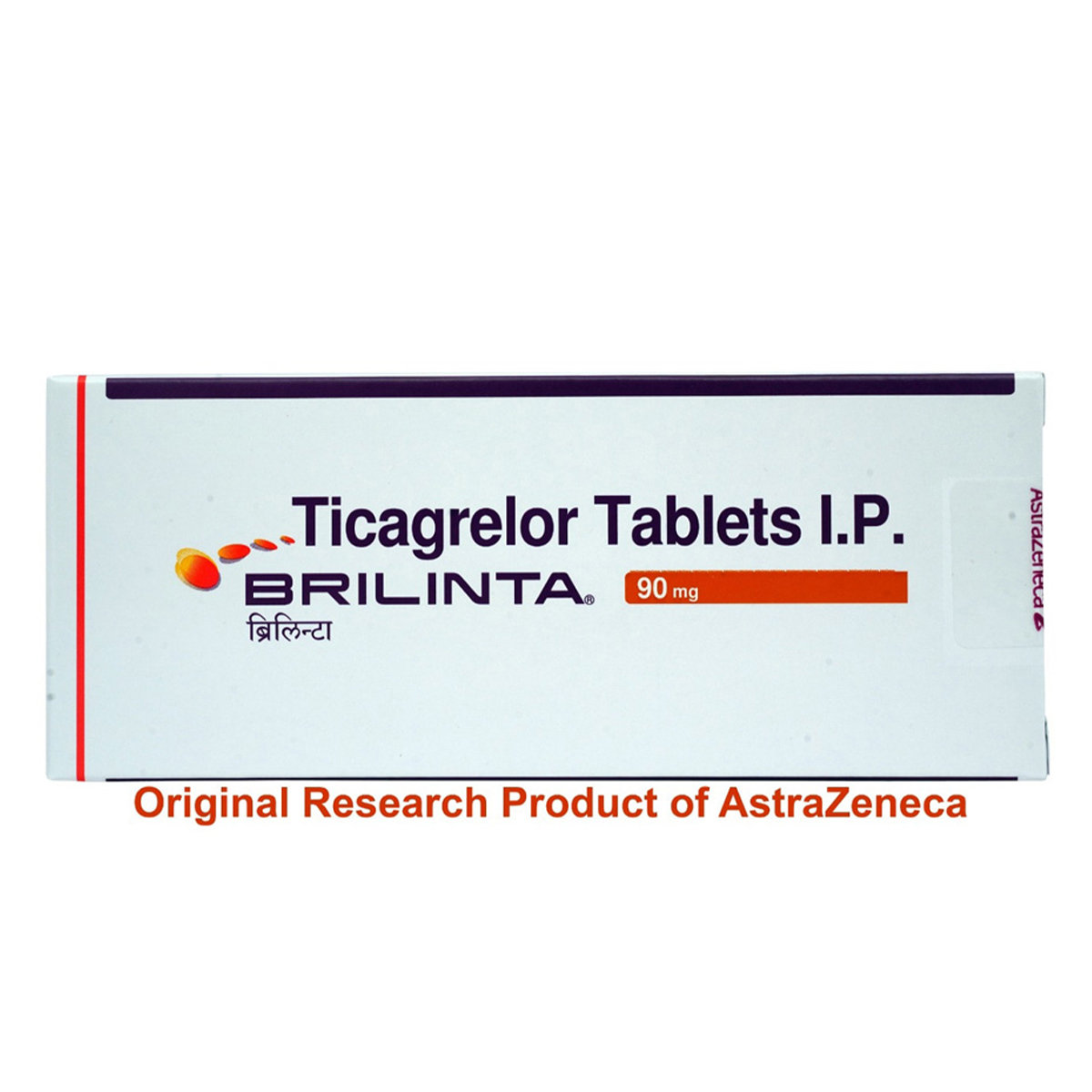Ticagat Tablet 14's
MRP ₹238.5
(Inclusive of all Taxes)
₹35.8 Cashback (15%)
Provide Delivery Location
Online payment accepted
 Prescription drug
Prescription drugWhats That
Composition :
Manufacturer/Marketer :
Consume Type :
Expires on or after :
Return Policy :
About Ticagat Tablet
Ticagat Tablet belongs to the antiplatelet drugs (blood thinners) primarily taken to prevent heart attack or stroke in people at high risk of heart disease. Ticagat Tablet helps to prevent blood clots in people with acute coronary syndrome (heart doesn't receive enough oxygen) who have had stents placed in blood vessels in their heart. A heart attack occurs when a blood clot blocks the blood flow to the heart. This blockage of arteries is often an accumulation of cholesterol, fat, and other substances, which form plaque in the arteries that feed the heart (coronary arteries). A heart attack signs include chest pain, upper body pain, sweating, nausea, fatigue, and trouble breathing.
Ticagat Tablet contains Ticagrelor, which is a blood thinner that prevents clot formation in the blood vessels. Platelets are blood cells that stick together and block any cuts and breaks in blood vessels. But platelets can stick together inside already narrowed blood vessels to form a clot in people at risk of heart attack or stroke. The clot can stop blood from flowing to the heart or brain and cause a heart attack or stroke. Here, Ticagat Tablet slows the blood's clotting action by making platelets less sticky.
Your doctor will advise you how often you take Ticagat Tablet based on your medical condition. In some cases, you may experience dyspnea (shortness of breath), tightness in the chest, blurred vision, nosebleeds, dizziness, faintness, or lightheadedness. If side effects are persistent, talk to your doctor. Ticagat Tablet may cause you to bleed more easily. You should not take Ticagat Tablet if you have bleeding in your brain, a problem with blood flow, or any other bleeding risk factor.
Before taking the Ticagat Tablet , let your doctor know about all your allergic or hypersensitivity reactions to medicines or food. Ticagat Tablet should not be stopped even if you feel better without consulting your doctor, as stopping a sudden intake of Ticagat Tablet may worsen your condition and increase the risk of a future heart attack. The patient should inform the doctor that they are taking Ticagat Tablet before any surgery is scheduled or any new medicine is taken. Don't take Ticagat Tablet before or after having heart bypass surgery. Before using Ticagat Tablet , consult your doctor if you are pregnant, planning to become pregnant, or breastfeeding.
Uses of Ticagat Tablet
Directions for Use
Key Benefits
Ticagat Tablet is an antiplatelet (blood thinner) and plays a vital role in preventing the formation of harmful blood clots in your blood vessels. Ticagat Tablet work by preventing platelets from sticking together, thereby decreasing the formation of harmful blood clots. Thus, it reduces the risk of heart attack, stroke, and acute coronary syndrome (heart doesn't receive enough oxygen or blood) in heart disease patients and patients who have undergone recent heart surgery with a stent.
Storage
- Tell your doctor immediately if you experience shortness of breath after taking medication.
- Your doctor may adjust the medication regimen or dosage or give alternative medical procedures to minimize the symptoms of shortness of breath.
- Monitor your oxygen levels and breathing rate regularly to track changes and potential side effects.
- For controlling stress and anxiety, try relaxation techniques like deep breathing exercises, meditation, or yoga.
- Make lifestyle changes, such as quitting smoking, exercising regularly, and maintaining a healthy weight.
- Seek emergency medical attention if you experience severe shortness of breath, chest pain, or difficulty speaking.
- Follow up regularly with your doctor to monitor progress, adjust treatment plans, and address any concerns or questions.
- If you experience nosebleeds or unusual bleeding after taking medication, seek medical attention right away and schedule an appointment to discuss your symptoms with your doctor.
- Your doctor may adjust your treatment plan by changing the dosage, switching to a different medication, or stopping the medication.
- If your doctor advises, take steps to manage bleeding and promote healing, such as applying pressure, using saline nasal sprays, or applying a cold compress, using humidifiers, avoiding blowing or picking your nose, and applying petroleum jelly to the nostrils.
- Schedule follow-up appointments with your doctor to monitor progress, adjust treatment plans, and prevent future episodes.
- Tell your doctor about the cough symptoms you're experiencing, which may be triggered by your medication.
- Your doctor may adjust your treatment plan by changing your medication, adding new medications, or providing guidance on managing your cough symptoms.
- Practice good hygiene, including frequent handwashing, avoiding close contact with others, and avoiding sharing utensils or personal items.
- Stay hydrated by drinking plenty of fluids, such as water, tea, or soup, to help thin out mucus and soothe your throat.
- Get plenty of rest and engage in stress-reducing activities to help your body recover. If your cough persists or worsens, consult your doctor for further guidance.
- If you experience low blood pressure symptoms like dizziness, lightheadedness, or fainting while taking medication, seek immediate medical attention.
- Make lifestyle modifications and adjust your medication regimen under medical guidance to manage low blood pressure.
- As your doctor advises, regularly check your blood pressure at home. Record your readings to detect any changes and share them with your doctor.
- Fluid intake plays a vital role in managing blood pressure by maintaining blood volume, regulating blood pressure, and supporting blood vessel function. Drinking enough fluids helps prevent dehydration, maintain electrolyte balance, and regulate fluid balance.
- Take regular breaks to sit or lie down if you need to stand for long periods.
- When lying down, elevate your head with extra pillows to help improve blood flow.
- Avoid heavy exercise or strenuous activities that can worsen low blood pressure.
- Wear compression socks as your doctor advises to enhance blood flow, reduce oedema, and control blood pressure.
- If symptoms persist or worsen, or if you have concerns about your condition, seek medical attention for personalized guidance and care.
- Wear compression garments like stockings, sleeves, or gloves to apply pressure and help stop fluid from building up, especially after the swelling goes down.
- Move around and do exercises to help the fluid circulate, especially in swollen limbs. Ask your doctor for specific exercises.
- Raise the swollen area above your heart level several times a day, even while sleeping, to help reduce swelling.
- Gently massage the swollen area with firm but not painful pressure.
- Keep the swollen area clean and moisturized to prevent injury and infection.
- Reduce salt intake to help prevent fluid from building up and worsening the swelling, as advised by a doctor.
- If the swelling does not get better after a few days of home treatment or worsens, consult your doctor right away.
- Talk to your doctor about your back pain and potential medication substitutes or dose changes.
- Try yoga or Pilates and other mild stretching exercises to increase flexibility and strengthen your back muscles.
- To lessen the tension on your back, sit and stand upright and maintain proper posture.
- To alleviate discomfort and minimize inflammation, apply heat or cold packs to the afflicted area.
- Under your doctor's supervision, think about taking over-the-counter painkillers like acetaminophen or ibuprofen.
- Make ergonomic adjustments to your workspace and daily activities to reduce strain on your back.
- To handle tension that could make back pain worse, try stress-reduction methods like deep breathing or meditation.
- Use pillows and a supportive mattress to keep your spine in the right posture as you sleep.
- Back discomfort can worsen by bending, twisting, and heavy lifting.
- Speak with a physical therapist to create a customized training regimen to increase back strength and flexibility.
Drug Warnings
You should avoid taking Ticagat Tablet if you are allergic to Ticagat Tablet or any active and inactive ingredients present in it. Let your doctor know if you have a medical condition that causes bleeding such as hemophilia, stomach ulcer, or bleeding in your head or bowel. Caution is required before giving Ticagat Tablet to the kidney or liver problems patients. People affected with respiratory problems like asthma, nasal polyps, or rhinitis should consult a doctor before intake of Ticagat Tablet . Ticagat Tablet is not recommended for the breastfeeding mother as it passes into the breast milk. The safety and effectiveness in children less than 18 years of age have not been established, so Ticagat Tablet should not be given to them.
Drug-Drug Interactions
Drug-Drug Interactions
Login/Sign Up
Using Ticagat Tablet together with Voriconazole can significantly increase the blood levels of Ticagat Tablet.
How to manage the interaction:
Taking Ticagat Tablet with Voriconazole is not recommended, but it can be taken together if prescribed by a doctor. However, consult a doctor if you experience vomiting, headache, dizziness, or weakness. Do not discontinue any medications without consulting a doctor.
The blood levels and effects of Ticagat Tablet may be greatly increased when combined with itraconazole.
How to manage the interaction:
Itraconazole and Ticagat Tablet may interact, however if prescribed by a physician, they can be used together. While receiving therapy, you should consult a doctor if you develop any unusual bleeding or bruising, swelling, vomiting, blood in your urine or stools, headache, dizziness, or weakness. Without consulting a doctor, never stop taking any medication.
Using Ticagat Tablet together with telithromycin cause increase the blood levels of Ticagat Tablet.
How to manage the interaction:
Taking Ticagat Tablet with Telithromycin is not recommended, but it can be taken together if prescribed by a doctor. However, consult your doctor if you experience any unusual bleeding or bruising, swelling, vomiting, blood in your urine or stools, headache, dizziness, or weakness. Do not discontinue any medications without consulting a doctor.
Co-administration of Ticagat Tablet with Conivaptan can increase the risk of bleeding.
How to manage the interaction:
Taking Ticagat Tablet with Conivaptan is not recommended, please consult your doctor before taking it. However, if you experience unusual bleeding or bruising, swelling, vomiting, blood in your urine or stools, headache, dizziness, or weakness contact your doctor immediately. Do not discontinue any medications without consulting a doctor.
Co-administration of posaconazole with Ticagat Tablet can increase the risk of bleeding.
How to manage the interaction:
Taking Ticagat Tablet with Posaconazole is not recommended, but it can be taken together if prescribed by a doctor. However, consult your doctor if you experience any unusual bleeding or bruising, swelling, vomiting, blood in your urine or stools, headache, dizziness, or weakness. Do not discontinue any medications without consulting a doctor.
Using Ticagat Tablet together with indinavir can cause risk of bleeding.
How to manage the interaction:
Taking Ticagat Tablet with Indinavir is not recommended, but it can be taken together if prescribed by a doctor. However, consult a doctor if you experience any unusual bleeding or bruising, swelling, vomiting, blood in your urine or stools, headache, dizziness, or weakness. Do not discontinue any medications without consulting a doctor.
Taking Ticagat Tablet with Ritonavir may significantly increase the blood levels of Ticagat Tablet.
How to manage the interaction:
Taking Ticagat Tablet with Ritonavir is not recommended, but it can be taken together if prescribed by a doctor. However, consult your doctor if you experience any unusual bleeding or bruising, swelling, vomiting, blood in your urine or stools, headache, dizziness, or weakness. Do not discontinue any medications without consulting a doctor.
Co-administration of Ticagat Tablet with ketoconazole can cause severe bleeding.
How to manage the interaction:
Taking Ticagat Tablet with Ketoconazole is not recommended as it can cause an interaction, it can be taken if prescribed by the doctor. However, if you experience any unusual bleeding or bruising, swelling, vomiting, blood in your urine or stools, headache, dizziness, or weakness, contact a doctor immediately. Do not discontinue any medications without consulting a doctor.
Co-administration of Mifepristone with Ticagat Tablet can increase the risk of vaginal bleeding in women.
How to manage the interaction:
Taking Ticagat Tablet with Mifepristone is not recommended, but can be taken together if prescribed by a doctor. However, consult your doctor if you experience any symptoms like heavy period bleed for more than 7 days, weakness, tiredness, shortness of breath or paleness. Do not discontinue any medications without consulting a doctor.
Taking Ticagat Tablet with Primidone may significantly reduce the blood levels of Ticagat Tablet, which may make the medication less effective.
How to manage the interaction:
Taking Primidone with Ticagat Tablet together can possibly result in an interaction, it can be taken if your doctor has advised it. However, if you experience any unusual symptoms, contact a doctor immediately. Do not discontinue any medications without consulting a doctor.
Drug-Food Interactions
Drug-Food Interactions
Login/Sign Up
Diet & Lifestyle Advise
- Reducing weight and having a healthy BMI is very important in enhancing cardiac health.
- 30 minutes of daily physical exercise can go a long way in preventing heart disease.
- Avoid smoking to improve cardiac health.
- Invest in a healthy, balanced diet. Avoid fatty foods, keep your cholesterol in check and load up on the green leafy vegetables, fish, lean meats, nuts and dry fruits.
- Reducing stress is very important in keeping a healthy heart. Try yoga and meditation for a relaxed state of mind.
Side Effects of Ticagat Tablet
- Dyspnea (shortness of breath)
- Tightness in the chest
- Blurred vision
- Nosebleeds
- Dizziness
- Faintness or lightheadedness when getting up suddenly from a lying or sitting position
- High level of uric acid in your blood
- Severe pain and swelling in your joints – these are signs of gout
- Bruising
- Headache
- Diarrhoea
- Indigestion
- Constipation
- Bleeding after surgery or from cuts (for example, while shaving) and wounds more than is normal
- Bleeding from your stomach lining (ulcer)
- Bleeding gums
Habit Forming
Therapeutic Class
All Substitutes & Brand Comparisons
RX
Axcer 90 mg Tablet 180's
Sun Pharmaceutical Industries Ltd
₹3857.5
(₹17.57 per unit)
14% COSTLIERRX
Brigrel Tablet 10's
Micro Labs Ltd
₹220
(₹19.8 per unit)
29% COSTLIERRX
Tiare 90 mg Tablet 14's
Msn Laboratories Pvt Ltd
₹322.5
(₹20.74 per unit)
35% COSTLIER
Author Details
We provide you with authentic, trustworthy and relevant information
Drug-Diseases Interactions
Drug-Diseases Interactions
Login/Sign Up
FAQs
Drug-Drug Interactions Checker List
- WARFARIN
- IBUPROFEN
- CITALOPRAM
- CLARITHROMYCIN
- RIFAMPICIN
- PHENYTOIN
- CARBAMAZEPINE
- SIMVASTATIN
- DIGOXIN
- ASPIRIN
- NEFAZODONE
- RITONAVIR
- ATAZANAVIR
Special Advise
- Take Ticagat Tablet exactly as prescribed.
- Talk to your physician if you miss a dose of Ticagat Tablet . Never take a double dose.
- Do not discontinue taking Ticagat Tablet abruptly or without the physician's advice.
- Please know that your doctor may order blood tests to check your hormone levels while you are on Ticagat Tablet .
- Your doctor may order a D-dimer to check your clotting profile while on Ticagat Tablet .
- Your doctor may order liver function tests (LFT’s) and a complete blood picture (CBP) to ascertain the effects of Ticagat Tablet .
Disease/Condition Glossary
Blood clot: Blood clot is an aggregation of blood that changes from a liquid to a gel-like state. Clotting is a natural process that prevents you from losing too much blood in surgery or cut, accident, and trauma. When a clot forms inside the veins, it won't always dissolve independently and can become an even life-threatening situation.
Heart attack: Heart attack occurs when a blood clot blocks the blood flow to the heart. This blockage of arteries is often an accumulation of fat, cholesterol, and other substances, which form a plaque in the arteries that feed the heart (coronary arteries). During a heart attack (myocardial infarction), the blood supply which nourishes the heart with oxygen is cut off. This causes the heart muscle to die. A heart attack signs include chest pain, upper body pain, sweating, nausea, fatigue, and trouble breathing.
Stroke: When our brain does not get sufficient oxygen and blood supply, it starts dying within a few minutes leading to a heart attack or stroke.
Acute coronary syndrome: Acute coronary syndrome is most often caused by plaque rupture or clot formation in the heart's arteries. The symptoms may include heart attack-like chest pressure, chest pressure while resting or doing light activity, or sudden heart stoppage.

Have a query?
Alcohol
Safe if prescribed
It is unsafe to consume alcohol since it may worsen the side effects like dizziness and increases blood pressure.
Pregnancy
Consult your doctor
Please consult the doctor. There are no adequate and well-controlled studies on pregnant women. Your doctor will prescribe only if the benefits outweigh the risks.
Breast Feeding
Consult your doctor
Ticagat Tablet may pass into breast milk and may cause side effects in a breastfed child. Please consult your doctor before starting Ticagat Tablet .
Driving
Safe if prescribed
Do not drive or operate machinery if you experience dizziness or drowsiness while using Ticagat Tablet .
Liver
Consult your doctor
Let your doctor know if you had or have any history of liver disease or hepatic impairment. Your doctor will weigh the benefits and potential risks before prescribing Ticagat Tablet . However, Ticagat Tablet is not recommended in patients with severe liver problems.
Kidney
Consult your doctor
Let your doctor know if you had or have any history of kidney diseases/conditions. Your doctor will weigh the benefits and potential risks before prescribing Ticagat Tablet . However, Ticagat Tablet is not recommended in patients with severe kidney problems.
Children
Safe if prescribed
Ticagat Tablet is not recommended for children below the age of 18 years. The safety and effectiveness of Ticagat Tablet have not been established in children.
Min. order qty: 4
Recommended for a 30-day course: 5 Strips

